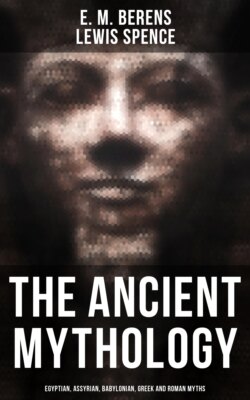Читать книгу The Ancient Mythology: Egyptian, Assyrian, Babylonian, Greek and Roman Myths - Lewis Spence - Страница 123
На сайте Литреса книга снята с продажи.
Nabu and Merodach
ОглавлениеAs in Babylonia so in Assyria, Nabu and Merodach were paired together, often as Bel and Nabu. Especially were they invoked when the affairs of Babylonia were being dealt with. In the seventh century B.C. we find the cult of Nabu in high popularity in Assyria, and indeed Ramman-Nirari III appears to have made an attempt to advance Nabu considerably. He erected a temple to the god at Calah, and granted him many resounding titles. But even so, it does not seem that Ramman-Nirari intended to exalt Nabu at the expense of Asshur. Indeed it would have been impossible for him to have done so if he had desired to. Asshur was as much the national god of the Assyrian people as Osiris was of the Egyptians. Nabu was the patron of wisdom, and protector of the arts; he guided the stylus of the scribe; and in these attributes he is very close to the Egyptian Thoth, and almost identical with another Babylonian god, Nusku, alluded to on pages 224, 225. Sargon calls Nabu 'the Seer who guides the gods,' and it would seem from some notices of him that he was also regarded as a leader of heavenly or spiritual forces. Those kings who were fond of erudition paid great devotion to Nabu, and many of the tablets in their literary collections close with thanksgiving to him for having opened their ears to receive wisdom.
